
IMF Annual Meetings Update
In our daily recap for today, October 13, we learn about the impact of the pandemic on balance sheets around the world; what policy action is needed to control the pandemic, limit scarring, and transform the global economy; spotlight our Analytical Corners; and more.
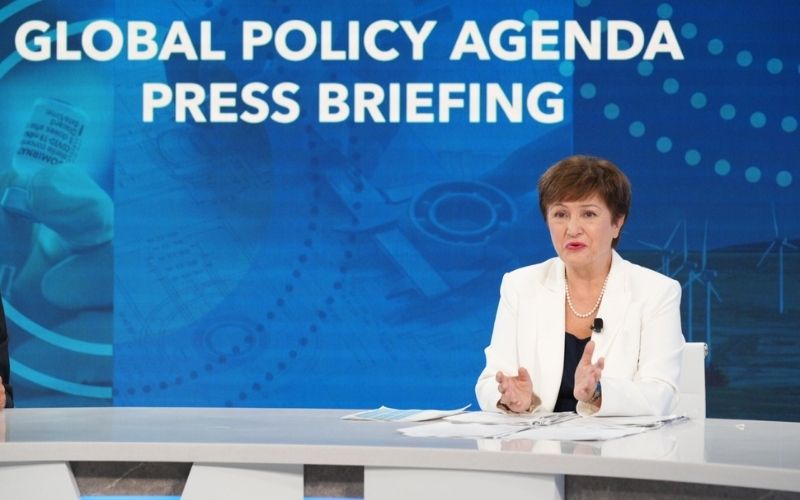
Vaccinate, calibrate, accelerate
IMF Managing Director Kristalina Georgieva on Wednesday outlined three key elements to a stronger recovery: stepping up vaccinations, calibrating policies to country circumstances, and accelerating fundamental reforms to boost sustainability and resilience. She described the priorities for her Global Policy Agenda in opening remarks to a press conference on the recently released plan.
“We are faced with some of the most complex policy choices, the most difficult trade‑offs in decades,” she said. “How we make them will have profound impact for years to come.”
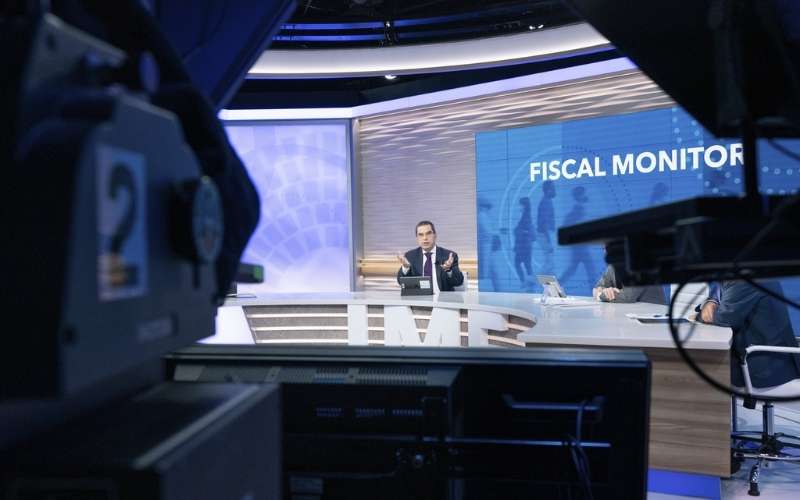
Fiscal Policy in an Uncertain World
The pandemic will leave a lasting mark on inequality, poverty, and government finances, suggests the IMF's Victor Gaspar and his coauthors in a new blog based on the recently-released Fiscal Monitor. The global pandemic has trigged a 14% jump in global debt, to a record high of $226 trillion. In advanced economies, fiscal policy remains supportive of economic activity and employment but in emerging markets and low-income developing countries the crisis is expected to have long-lasting negative impacts and lead to a reduction in fiscal revenues relative to pre-pandemic trends.
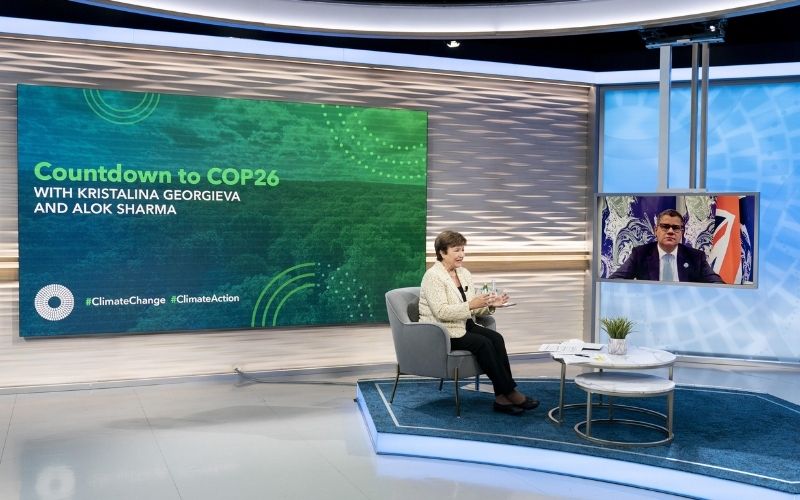
Countdown to COP26
The UN Climate Change Conference (COP26) starts at the end of the month, presenting a pivotal moment for countries to solidify a strategy to tackle climate change. In today's seminar with IMF Managing Director Kristalina Georgieva, COP26 President Alok Sharma said more work needs to be done to avert a catastrophic rise in global temperatures. Sharma has made four consistent asks to country officials: countries need to step forward with ambitious plans to cut emissions and reach a net-zero emissions goal by 2050; developed nations need to step up and provide the $100 billion per year in financing to help developing countries fight climate change; set out plans for climate change adaptation; and agree to the final outstanding rules of the Paris Agreement.
Don't miss Sharma's article in our latest issue of Finance & Development Magazine where he discusses humanity's "golden opportunity" to pursue a green, inclusive and resilient recovery.

Analytical Corner Session 2: Inequality
The second session of our Analytical Corner series featured IMF economics analysis on the topic inequality in areas of employment, epidemics and real-time data. Hippolyte Balima explained how informality in North African countries is explained by their level of development rather than policy distortions. Catherine Myimdjui and Diego Gomes discussed how epidemics can have a long-term negative effect on the education of girls. Ting Lan discussed how economists can leverage big data to measure inequality in real time.
Quote of the Day
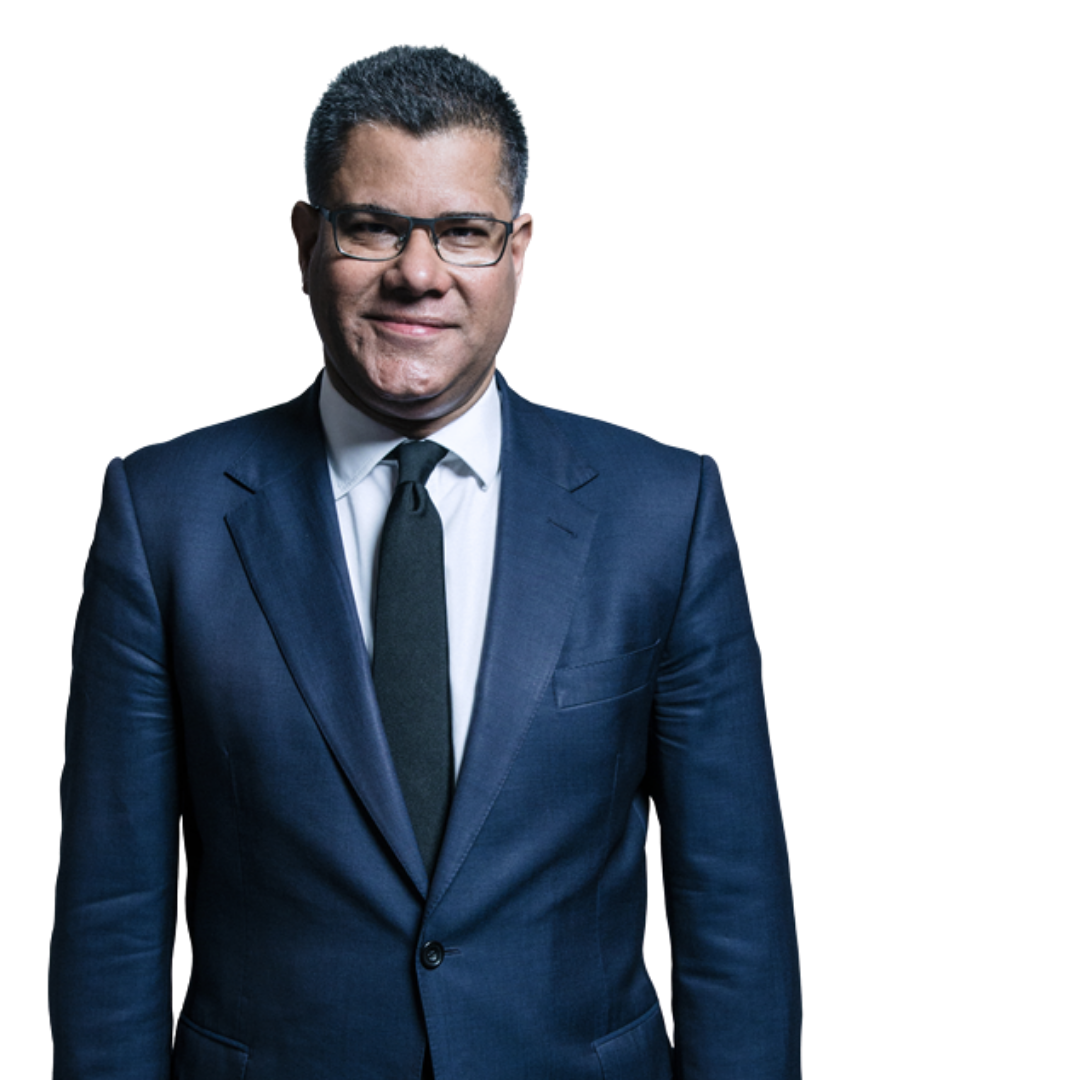
I am absolutely certain that we will see a transition to a green economy across the world in my lifetime. The question is, can we go fast enough to mitigate the worst effects of climate change? And this is what we need to agree collectively on at COP26.
ALOK SHARMA, PRESIDENT OF THE 26th UN CLIMATE CHANGE CONFERENCE COP26
Photos

The IMF's Vitor Gaspar, Paolo Mauro and Paulo Medas answer questions from the press at the October 2021 Fiscal Monitor press conference.
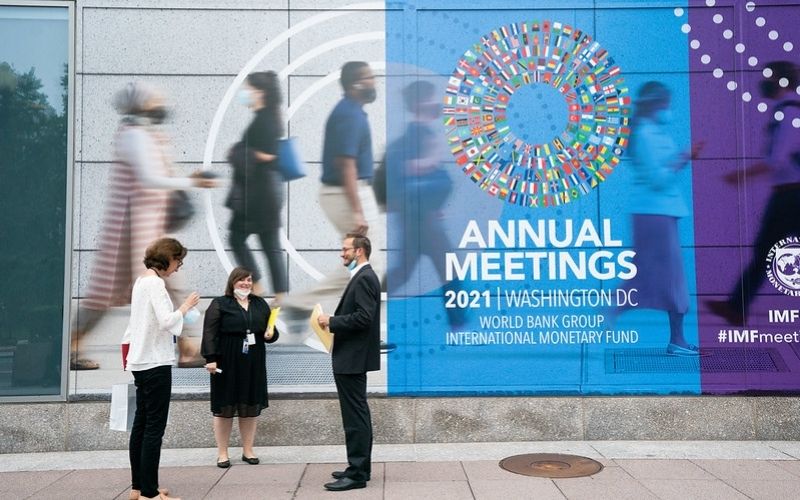
Signage heralds the 2021 Annual Meeting at the International Monetary Fund.
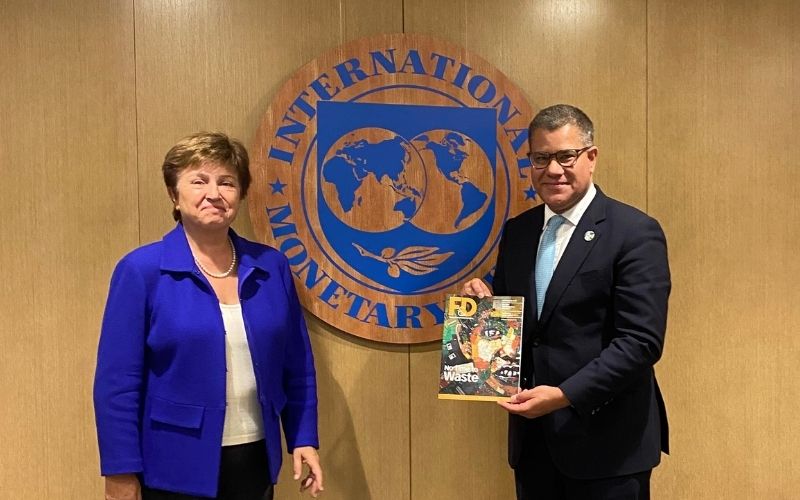
Kristalina Georgieva presents the special climate edition of the IMF finance and development magazine to Alok Sharma.
Number of the Day
$88trillion
Public debt now amounts to $88 trillion globally, a value close to 100% of GDP. In 2021 and 2022, public debt is expected to decline by about 1% of GDP each year; after that, it should stabilize at about 97% of GDP. As debt rises, countries will need to calibrate fiscal policies to their own unique circumstances, including the rate of vaccination and strength of the recovery.
Learn more
SIGN UP FOR OUR DAILY NEWSLETTER
Sign up to our special daily briefing to help guide you through our October 2021 Annual Meetings—pointing to all of the key publications, live events and more.
Sign UP
Upcoming Events
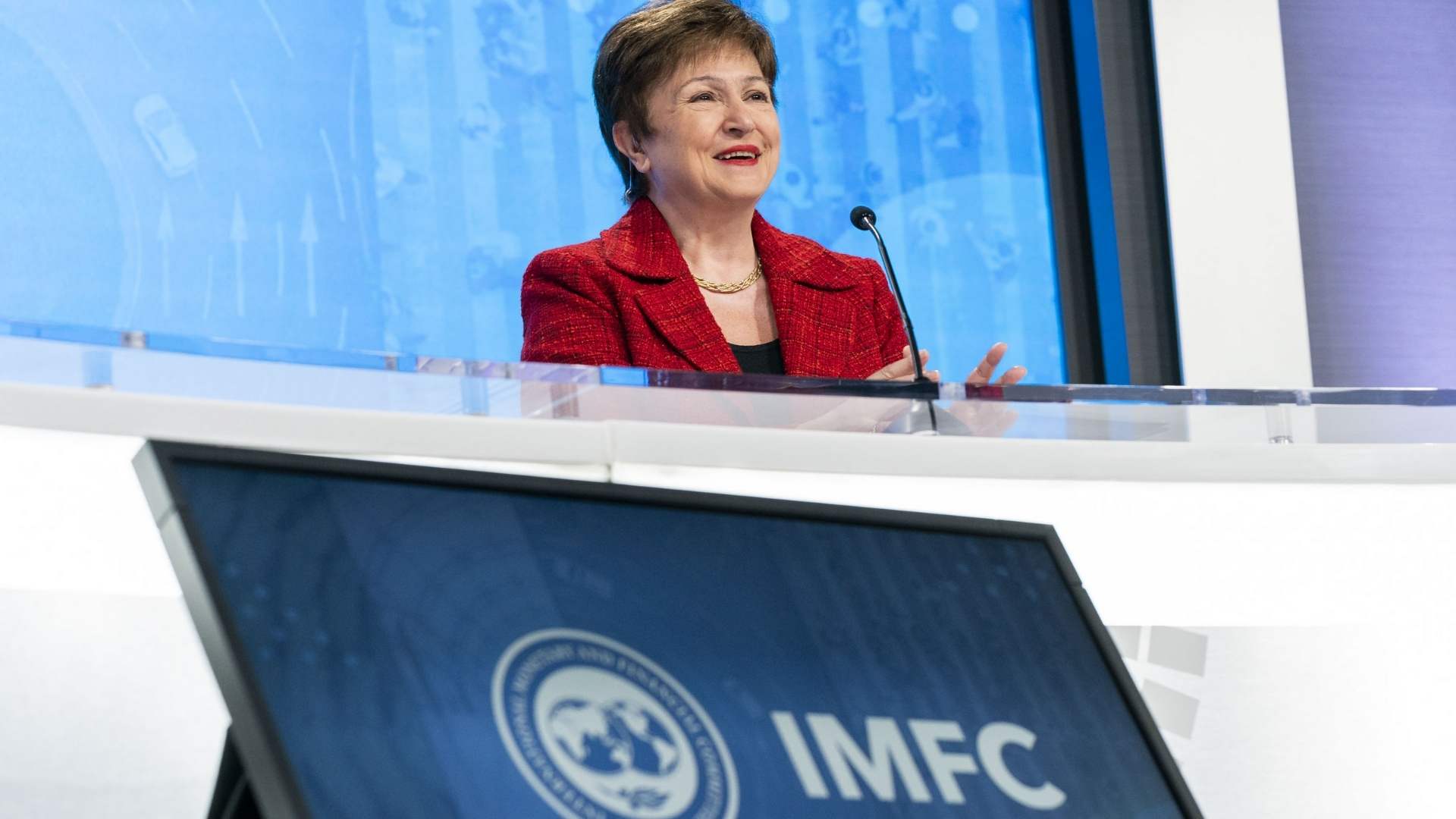
Press Briefing: International Monetary and Financial Committee (IMFC)
IMF Managing Director Kristalina Georgieva and IMFC Chair Magdalena Andersson on the discussions by the International Monetary and Financial Committee
Event Details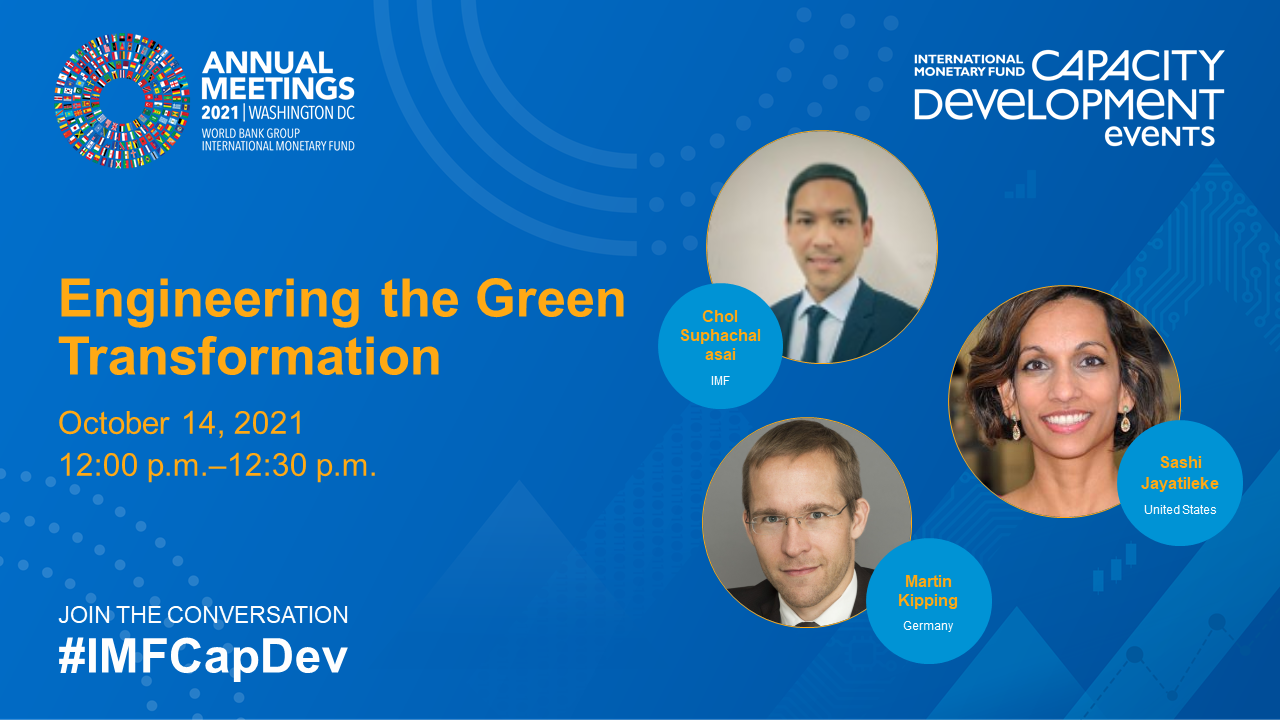
Capacity Development Talk: Engineering the Green Transformation
This event explores how economic institutions can adopt climate-friendly economic policies, such as green budgeting and climate change policy assessments, to meet their commitments under the Paris Agreement.
Event Details
IMF Seminar: Debate on the Global Economy
The global recovery continues amid uncertainty on when the pandemic will be overcome. With unequal vaccine access, inflation pressures, and still elevated unemployment, policies face multiple challenges. Join this debate on the global economic outlook.
Event Details


